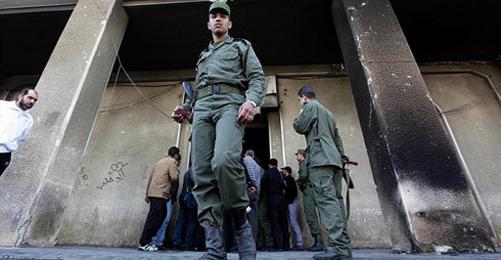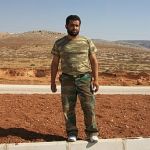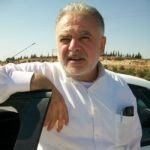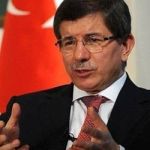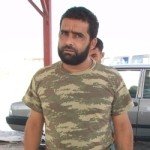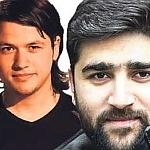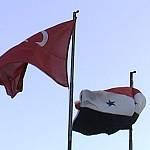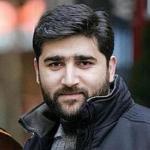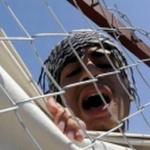The 88-page report of Human Rights Watch (HRW), "'By All Means Necessary!': Individual and Command Responsibility for Crimes against Humanity in Syria" is based on more than 60 interviews with defectors from the Syrian military and intelligence agencies. The defectors provided detailed information about their units' participation in attacks, abuses against Syrian citizens, and the orders they received from commanders and officials at various levels, who are named in the report.
"Mansour," a member of Air Force Intelligence in Daraa, said that in April the commander in charge of Air Force Intelligence in Daraa, Colonel Qusay Mihoub, gave his unit orders to "stop the protesters by all possible means," which included the use of lethal force:
"Our orders were to make the demonstrators retreat by all possible means, including by shooting at them. It was a broad order that shooting was allowed. When officers were present, they would decide when and whom to shoot. If somebody carried a microphone or a sign, or if demonstrators refused to retreat, we would shoot. We were ordered to fire directly at protesters many times. We had Kalashnikovs and machine guns, and there were snipers on the roofs".
"Osama," who served in the 555th Airborne Regiment, 4th Division, said that Brigadier General Jamal Yunes, the regiment commander, gave the troops verbal orders to shoot at protesters during their deployment to Mo'adamiyeh, a neighborhood of Damascus, in May:
"Initially, when the protest started, Brigadier General Jamal Yunes told us not to shoot. But then he received additional orders from Maher [Maher al-Assad, the commander of the 4th Division and President al-Assad's younger brother]. He had some kind of paper that he showed the officers, and then the officers pointed their guns at us, and told us to shoot straight at the protesters. These officers later told me the paper contained orders from Maher to 'use all possible means.'"
"Zahir," deployed to Banyas, Bayda, and Basateen in April and May, described how officers in his unit and accompanying intelligence agencies carried out arrests and looting in the towns they invaded:
"In Bayda, we broke the doors and took whatever we wanted. The mukhabarat [intelligence agencies] were arresting people; in one area, they arrested 10 old men to force their children to turn themselves in. The same continued in Banyas, where we went the next days. In Basateen, we looted everything, both my unit and others. We always took money, and then whatever was there: gold, mobiles, electronics, and sometimes even women's clothing. I saw the mukhabarat and some soldiers also touching women inappropriately, pretending to be looking for bombs and explosives".
"Salim," an officer with the 46th Special Forces Regiment who was stationed at the Idlib camp, described the mistreatment of detainees brought to the camp under the watch of the commander who oversaw the operations in Idlib, Imad Fahed Al Jasem:
"From July to September, I observed how the mukhabarat brought detainees to the camp [in Idlib], usually 10 to 30 people, around 9 or 10 p.m., after every protest - and they happened almost daily. They lined them up, blindfolded, put them on their knees, and beat them up. They swore at them, and put their feet on people's heads. It was outside, right near my office. They beat them up while waiting for Al Jasem [Imad Fahed Al Jasem, who oversaw the operations in Idlib] to come to inspect the detainees".
"When Al Jasem arrived, he would swear at the detainees for participating in the protests. And then they would take them to a nearby prison. The prison was guarded by the soldiers from my unit, so I sometimes went there. They held the detainees there for a night, in a 6-by-7 meter room, without food or water".
"Nizar," who was a guard in the military hospital in Homs from mid-April to mid-September 2011, described the beating and torture of injured protesters detained at the hospital:
"The mukhabarat and the army brought the injured and unloaded them in the yard next to the emergency area. Everybody would start beating them, including doctors and nurses. All the detainees were blindfolded".
"After the initial beating in the yard, the nurses and guards took the wounded into the emergency room, provided them some basic assistance, and then the mukhabarat took them. They first held them in a detention facility on the premises for a few days; the army police was in charge of it. Then members of the Air Force Intelligence took them away in their cars. That was the case with every single injured person brought to the hospital. I think people were tortured in the detention facility because I regularly heard their screams. People with serious wounds were taken to intensive care and guarded there by army police. Sometimes, soldiers would go in there, and I would hear people screaming; I think they were beating them inside there".
"Colonel Dr. Haitham Othman was in charge of the hospital. The chief doctor in the hospital was trying to tell him and the mukhabarat not to torture people because the hospital's job was to treat people and not to torture them, but everybody just ignored him".
"We were not supposed to allow any family members in. When relatives asked at the gate, we told them that this was an army hospital and it didn't have any civilians". (ÇT)
Click here to read the full press release.
Source: www.HRW.org




